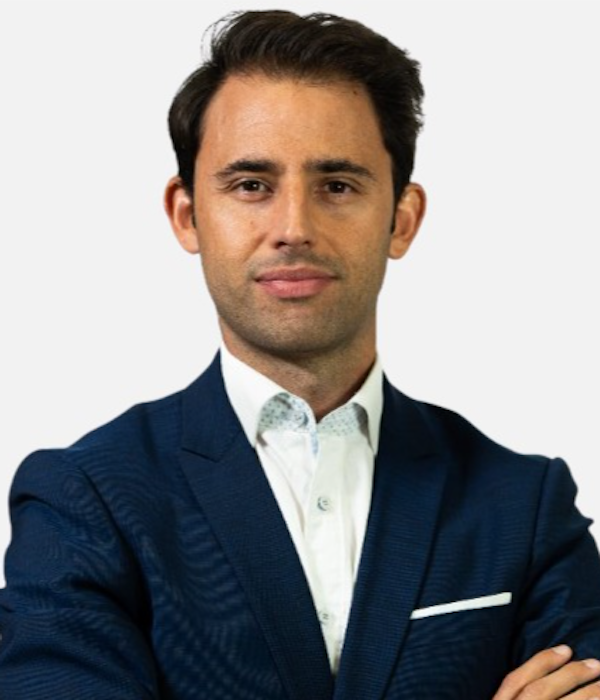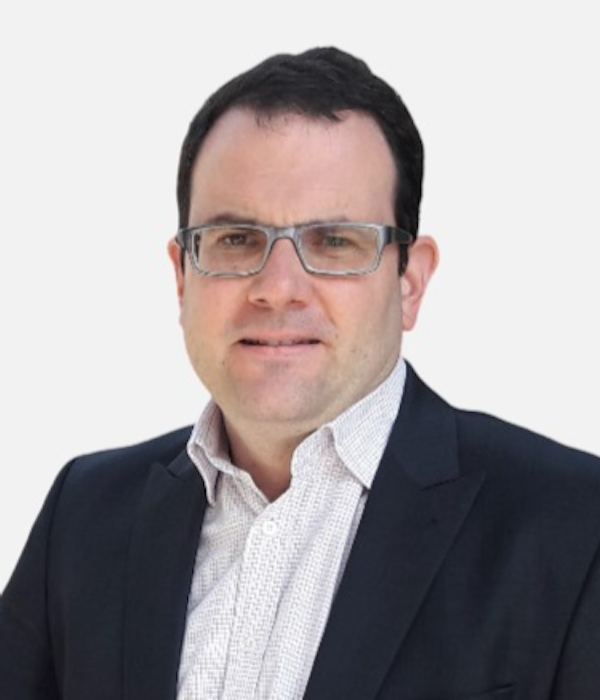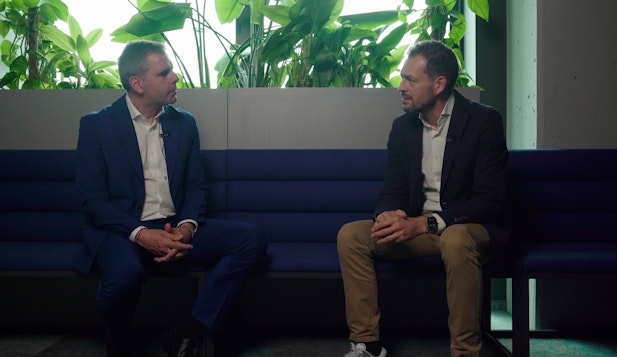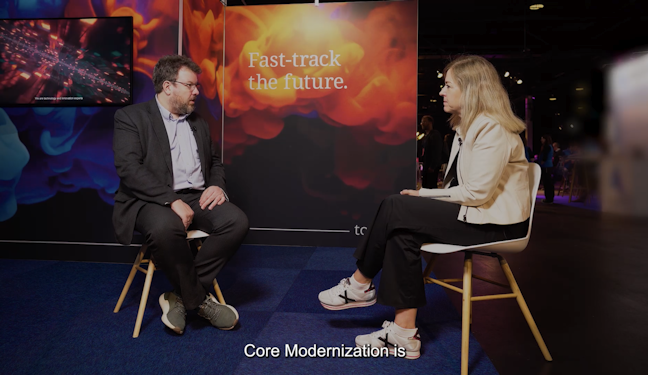
Caser's Proposal to Go Beyond Life Insurance: The Importance of Financial Planning
Víctor Velasco, Head of Life, Pensions & Investments at NTT DATA Insurance EMEAL, and Daniel Blanco, Head of Life & Pensions (Individuals Business) at Caser, discuss about the role that insurance companies play in creating awareness about the need for Life Insurance. How are Health and Life Insurance intertwined within each other in terms of financial planning? How are the moments of uncertainty, which are more and more common, an opportunity of insurers? All these answers in our fifth episode of Insurance Dialogs.
Speakers
Víctor Velasco
Head of Life & Pensions Insurance Key Line in EMEAL
Daniel Blanco
Head of Life & Pensions (Individuals Business) at CASER
Transcription
Welcome to our Insurance Dialogs initiative. Today we have with us Caser's Director of Life and Pensions Insurance, Daniel Blanco. Welcome, Dani.
Thank you very much. It is a pleasure to be with you.
The pleasure is ours; thank you for your time to be here with us today. Well, today I would like to start by asking you how COVID has impacted you at Caser. In the end, all entities have had to go through a transition period, haven't they? How have you dealt with this new world after COVID-19?
At a Life insurance level, as I carry that responsibility, perhaps we have noticed a greater sensitivity towards holding Life Risk insurance, for obvious reasons. People have looked more closely at the possibility of having a mishap or a scare. And it hasn't been an industry that has been very much affected by the accident rate either. The accident rate has obviously increased slightly but contained. We have to remember that COVID had an impact, above all, on elderly people, most of them not covered by Life insurance, so it has been bearable. Caser has been able to pay all the claims and, as of now, I think it is a selling point along with all the others for having Life insurance. We must remember that this country still has a long way to go. At the level of financial planning, of insurance, there are many people without Life insurance, having family and personal burdens and beyond having insurance associated with the mortgage loan. There are many families who are not aware of the importance of having a small risk coverage to go through those transition processes when a member of the family dies and you have to redo everything that is income, and expense budgets... All that, as I say, is better handled having a Life insurance than not having it, obviously.
Yes, in reality, in the end, you never know when that event might occur. Nobody wants it, but you always have to have a contingency behind you that can cover you, right? And that the rest of your family unit then has, can maintain that lifestyle.
We are very much associating the product with the concept of financial planning. We are constantly sending out messages that having savings of 50,000 to 100,000 euros, it may seem that we have a certain robustness to face mishaps, but that this is just a sugar cube that dissolves quickly in a glass of water if something happens tomorrow.
Clearly.
And if apart from that, you have another life insurance that guarantees you 1, 2, 3 or 4 years of income of the person who dies, well, the problem is there, but it is much better than if you do not have it, right? And for the cost of this type of insurance in certain courts...
Yes, we're talking about a product that is assumable in cost for the family unit.
We are talking about… For people who are around 30 to 40 years old, 20-30€ of monthly premium for 100,000€ of capital, more or less, roughly speaking, with differences depending on the profession and age. But it is not money if something happens tomorrow. We want to instill that, we have to convey to the population that for the cost of this, why not have Life insurance?
And to go along with what you're saying, in terms of household savings, well, after COVID we're in the middle of an economic crisis, this is coupled with the war in Ukraine, the skyrocketing inflation levels in the last few months... All this has led to the fact that interest rates, which have been negative for several years now, have turned positive and in the last few months we have an exponential curve in terms of interest rates, right? I would like to ask you. The traditional savings products during these last years, with these interest rates, have been disappearing from most of the insurance companies because it didn't make sense, in the end, the profitability of their products didn't make sense for the company. As you see, not now with this change, this trend, are these types of products, or other similar products, going to reappear, or how do you see it?
Well, the fact that these savings insurance policies, with guaranteed or quasi-guaranteed rates, are now on the market is already a reality. All the insurance companies are starting to offer this type of product. I think these are products that are here to stay, regardless of what happens in 12 months with what it is being talked about of an inverted rate curve. I think that the inflation levels that we have are also going to last and the monetary authorities will have no choice but to maintain the rates that keep inflation at bay, so there are already conditions to offer savings insurance, even if it is for short terms, with a positive and certain rate. And this is a product that is very attractive in Spain because of the idiosyncrasy of the Spanish saver, who does not want risk, who wants conservative products and certain products, time deposits or monetary funds… So we have to live with that, we have to adapt, but we must not forget the importance of long-term wealth planning either. In the long term, the only way to beat inflation is to have in our portfolio products that include variable income, savings insurance with policyholder risk, where, obviously, the policyholder assumes a risk, but that in terms of 10, 20, 30 years get very interesting returns that allow us to cover retirement objectives, savings objectives, for example, to pay for our children's postgraduate studies, that are not achieved in the same way, with guaranteed rate insurance. An insurance that is practically eroded by inflation...
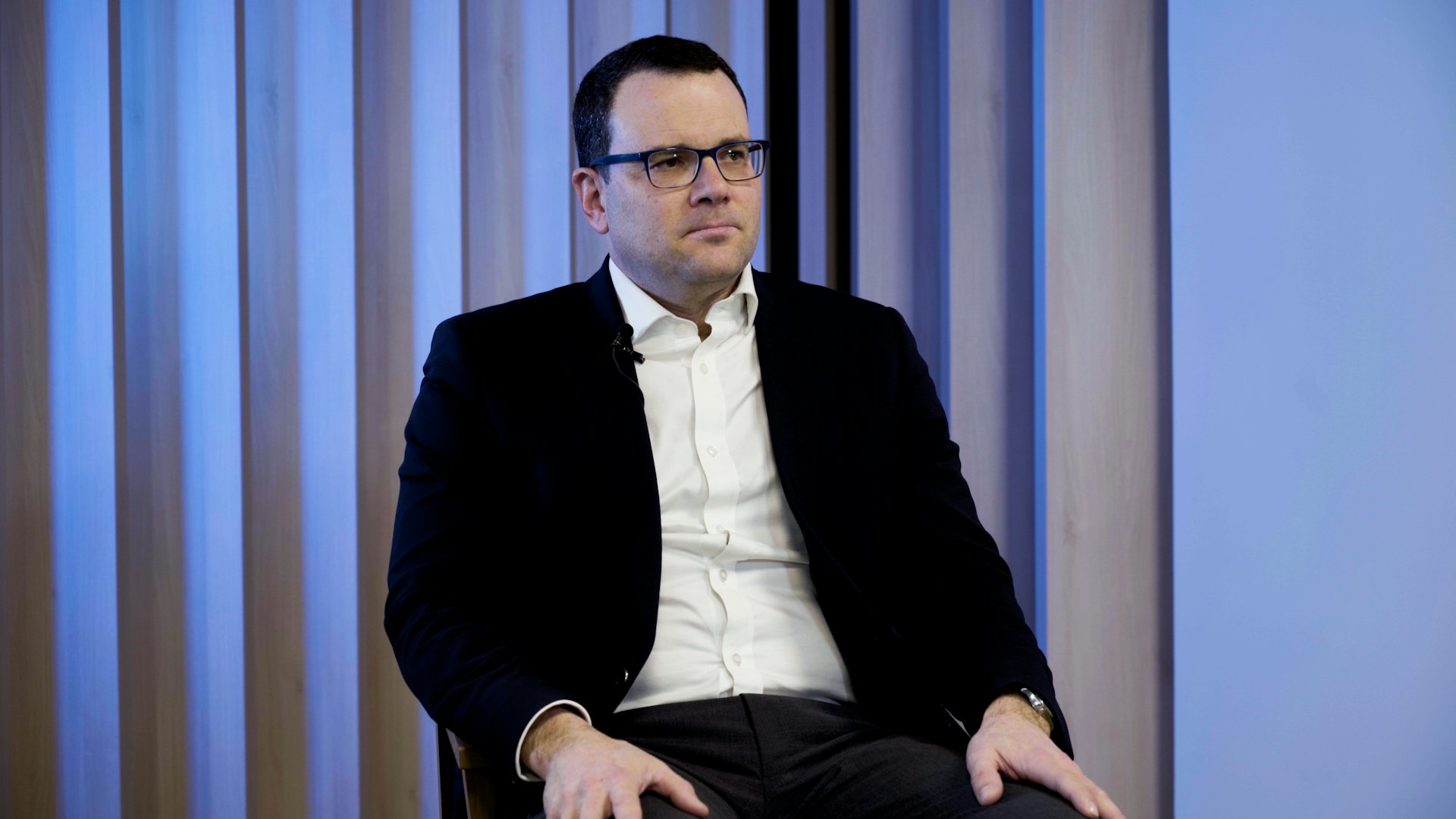
Yes, which is more or less balanced. Or even a little bit below, right? In the end, the key to what you said, I think, is long-term. That is, having the ability to look with a long-term perspective.
Always.
Not in the short and medium-term, because in the end we are subordinated to the short-term, 20 or 30 years from now, as you were saying. That's the importance of having that equity that allows me to beat inflation. In addition, the compound interest rate of our savings will allow the snowball that can be created to be much higher than inflation. In those 20 or 30 years.
The important thing is to convey to the client the need to have a diversified portfolio. There must be products with guaranteed profitability and products where there is risk-taking, where there is variable income. In other words, I am going to invest the bulk of my investments, the bulk of my assets, in quiet products, products that will have a positive return, such as guaranteed savings insurance. But I always have to set aside a larger or smaller part of our wealth, of our risk profile of the horizon that we're looking at, to include equities there. Globally diversified equities, sector diversified equities, because that over long-time horizon gives quite a lot of returns. And the client is often the one who, if at a given moment we have not talked to him about this idea, after some time, may throw it in our face: "You have sold me guaranteed rate products, but you haven't saved me with equities, because after 4, 5, 7, 10 years it gives me, I don't know, 30, 40, 50, 50, 60% depending on the asset class we are talking about, which is important for building my retirement planning capital or buying a second home, etc." That's where the value lies, both for insurers and insurance agents, financial advisors: trying to make the client think not in a year's time, which is what everybody does. It's more like "hey, how do you see yourself in 20, 30 or 40 years? What are you going to do with your life and what financial and insurance products do you need to fulfill those dreams, those investment objectives?”.
But here, what a person or a family unit can tell you is that with my current salary, with the circumstances, with the expenses I have today, the savings capacity I have is very small. Does this model still apply?
This model depends on the scale or the saving capacity of each person. In life, it is often a matter of priorities. There are people who prefer spending over future consumption, but these are people who often also have the capacity to save. We are talking about €50 a month, €100 a month, whoever, with more or less, with a small organization can manage to set aside resources to deal with this. And well, we will have to prioritize. In order of priority, the first thing is to have precautionary savings, savings for unforeseen events. This precautionary saving obviously requires conservative products, quiet products that allow us to dispose of our money along the same lines as any other product in a year, two years, three years from now. As you cover stages, as you cover objectives, you can already consider solutions with more risk, more market risk, where between equities and other products, let's say with volatility but with revaluation potential, you can reach more important objectives. We have to remember that in Spain the presence of the State is fundamental and the welfare State plays a key role and, thank God, today we have pensions that cover 70% of our pre-retirement salary. Well, we have that as a basis, but life has more things. You have the possibility of falling into a situation of dependency, unforeseen events arise... So everything you save, even if it is on a small scale, is good to face the unforeseen things of life. So I think that everyone, depending on their capacity, can take steps in this need to save and plan for the future.
I mean, I don’t know if you agree with me, but in the end the important thing is the following. At the beginning of the month, when you have your income, consider that saving, whether it is a lot or a little, as one more expense that you take out of that purse and then the rest of the money that you have left is what you use for your daily expenses, etc. Do not wait until the end of the month to see what I have left in my account and save so, because it can sometimes be zero.
That's the best way to save. As you say, you don't have to be Warren Buffet to do that. And if you are able to invest that money in products with a return, then even better. Our function as insurers, as agents, as advisors, is precisely to transfer these ideas and make people have the most organized finances possible, where Life insurance also comes in, let's say, as a beam that supports the whole financial plan.
Perfect.
I wanted to ask you about the new generations. We are talking about millennials, we are talking about Gen Z. They are new generations, they live glued to mobile devices, whether it is a cell phone, whether it is a tablet...
In the end, these new generations demand new types of products, they demand that any process, from the contracting to the management of any operation of the policy, of the management of the claim, everything is digital. They no longer want to go to an office as in the past.
This digital transformation, to which insurers are being forced, is normal. From your perspective, how do you think you are handling it?
Well, we have made an enormous effort to adapt our digital channels to modern times, to the 21st century, but we still think that the most successful model is the hybrid model. The model where on one side you have the insurance agent or the financial advisor, and on the other side, you have the technology, the tool, the channel that supports the first one. We do not visualize a 100% digital world precisely because of what I said at the beginning: the level of financial education in Spain is quite limited, so there is a work to create a need, to make people see the importance of having a Life insurance, start saving for retirement little by little, month by month... And all of that, to do it from the digital channel. It can certainly be done, in fact we are making efforts. Caser has important actions, for example the Pension and Savings Observatory. We were the pioneers in launching this online and face-to-face financial education initiative to our clients and potential public. But it is complicated. There is nothing like the work of an agent interviewing the client and making them see things that in digital would take much longer to do. So technology is fine for tasks like, for example, follow-up, follow-up on investments or on the product that the agent has prescribed, but it cannot be a substitute. In the end, the hybrid model, agent on the one hand and technology that supports the work of the agent and allows the client to follow up on the products contracted. We believe that this is the best formula.
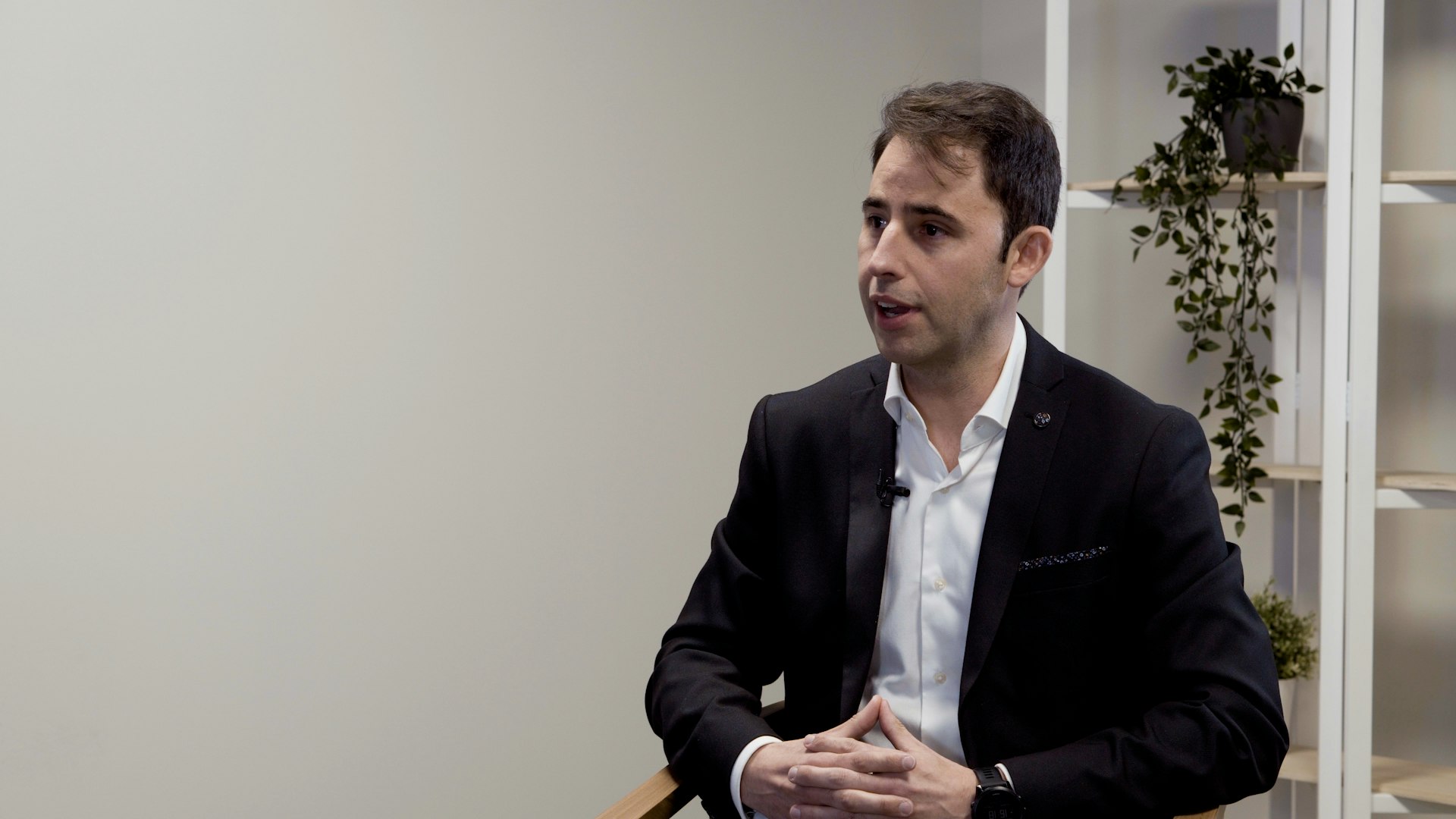
This is the key to success for this type of product.
Yes, all the attempts that have been made... Wait, I am talking about life insurance, okay? Perhaps in General insurance is another model; they are mandatory insurances or insurances that people are aware that they have to take out, so people do enter the digital channel in websites, comparators and they see differences. But in the case of Life Insurance not, the key is to create need. So we have to have well-trained agents, well trained, but with the best technology so that all this work of prescription has much greater value and the customer at all times is clear about how it goes, what it fits, what he should do. So we're working on tools like, for example, Life planners, financial planners that project to the customer their Life state 20 or 30 years from now. And well, you see gaps or you see the consequence of taking some actions or making some decisions versus others. In the end, we are talking about a gamification process many times, but that awakens, let's say...
That need.
Yes, that need and that thought of "if I take this decision I can end up in this and if I don't take it, the consequence is this". This does not come to people per se, you have to make them see it.
It is very interesting your reflection, because in the end all people have a life cycle, right? That is to say, it is not the same when you are 20 or 30, when you are 50, or when you are 70. So at each moment the needs are different.
Certainly.
And as you rightly say, an Auto product or a Home product, where they are mandatory, you enter the simulator and automatically do it. But at the end of the day you are talking about your saving capacity in the future, when you are going to retire or cover your death or disability contingencies. So another question I had was, precisely, at the level of advice. How important it is for people to get the right advice at all times, because what you may need today you may not need tomorrow and vice versa. In the end, your life changes and therefore your needs change.
Yes, the work of the insurance agent or the financial advisor is basic, making people think about their life cycle, which is something that should be taught at school, but for now the truth is that it is not taught. So we have to have people well trained in all the main points to do this work. In taxation, in legacy issues, in succession, in product issues, in investment and market issues. We have to go with the best toolbox so that the client, in short, gets his tailor-made suit. And here technology is fundamental. It can be done on paper napkins as it has been done until recently, but having tools with mobility, planning, projection and simulation tools are essential for the client to become aware of what is coming in the next few years and to reach retirement with as much coverage as possible. Life is unpredictable and it is better to have resources than to go "bare-bones". No matter how much welfare state we have, at the end of the day welfare is more and more subject to cuts and let's say that we all face, but less than we faced before. So if we have a certain amount of resources and insurance products, we obviously face this uncertainty better.
Of course, to all this, you have to add the fact that our life expectancy is increasing every day, every year that goes by. If you add this to the fact that the retirement age is becoming more and more stressed, because in the end we have the problem of public pension systems which, as of today, is 70% as we were saying, but tends to be progressively reduced due to the rules that are being incorporated.
Nobody know what is going to happen in the future.
Exactly, you don't know what can happen in 20 years, in 30 years. That is why it is so important that in this stage of accumulation you have the capacity to face the accumulation stage in order to be able to continue maintaining the standard of living that you had before.
I think that in the end, public pensions have a significant regulatory risk. We depend on the legislation that will affect us when we retire. It is a very cumbersome legislation, with continuous changes, depending on the government of the moment, because in Spain we have not wanted to have a constitutional agreement on pensions and there is not the variability that there is in pension rights, so we cannot gamble our future on that. I mean, we always have to have one up our sleeve to face the possible situation of less public pension coverage then our parents or grandparents have had so far. Everyone, to the extent that they can, I believe that they should take steps in this direction. The same goes for the dependency issue. Nobody thinks about dependency. Dependency is there. Dependency on average comes from the age of 80, 80-something years. But there are also people who suffer from dependence earlier. And well, nowadays, to renovate a house and adapt it to a situation of dependency, that is to say, to change doors, adapt bathtubs, etc. We are talking about an average cost in Spain of 30,000, 35,000, 40,000 euros. It is better to have that money or it is better to have insurance to provide it than not to have it. Like everything else, they are ways of approaching life. There are people who are more, more risk-loving and prefer to gamble a bit more in definition, but a good family man, a person let's say, ordered in a developed society, takes steps to make that much more certain.
Yes, to have all that covered in a way.
So, we are in a country where we are not prepared for these things. We are a bit "bullfighters", we wait and see, and when it comes, God will tell.
We’ll see what we do.
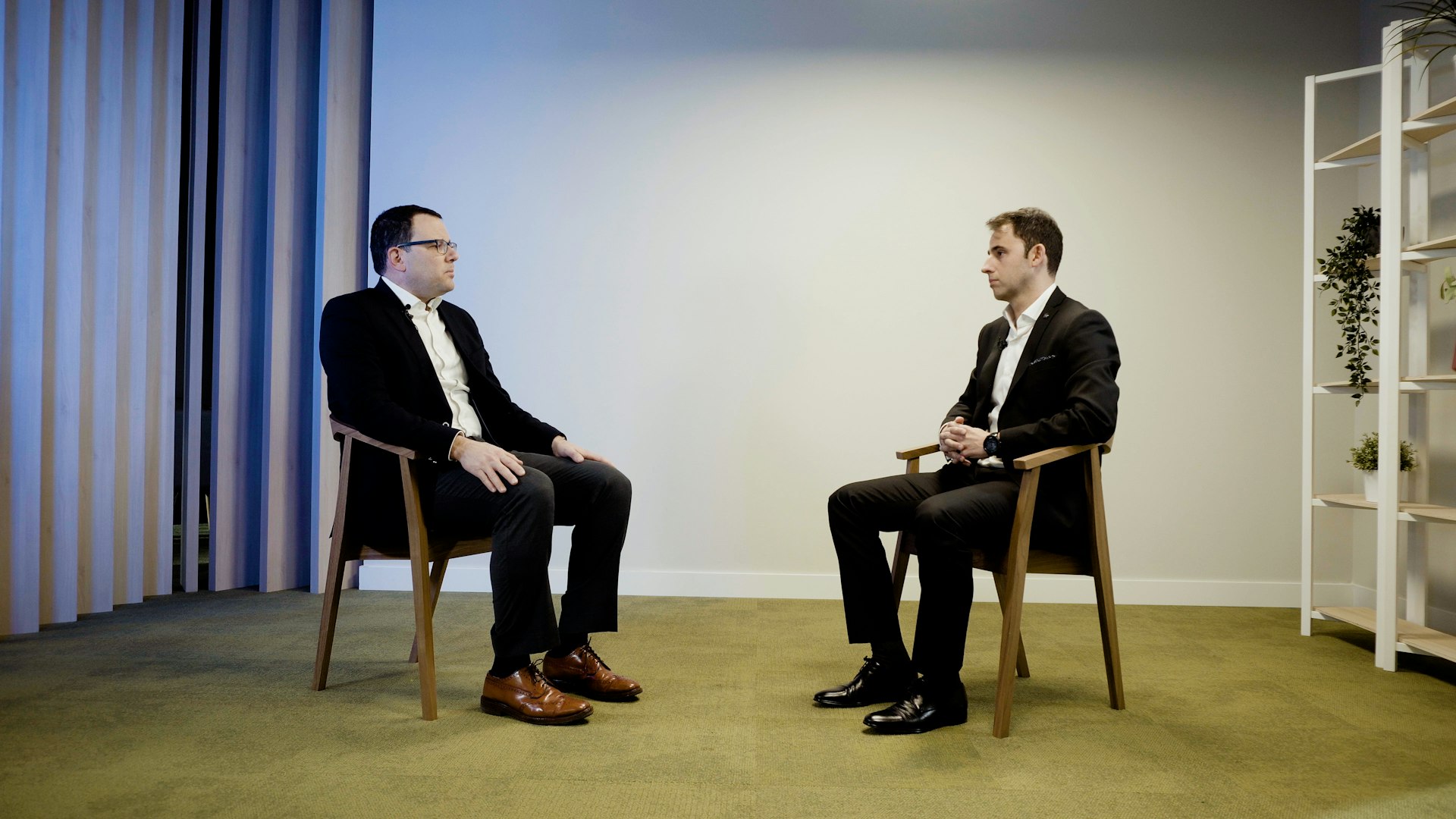
But the reality is that taking small steps in this area makes the problem less burdensome than if we leave it for a few years before retirement, four or five or six years. In that case, the financial burden of raising a fairly large amount of capital means that many people can no longer afford it. Ideally, we have to start taking steps as soon as we enter the labor market and have a certain job stability. Which is not everybody, I understand, in a country like this, where there is significant youth unemployment, but there are people who can do it and do not do it. Well, that is the sad thing, isn't it? The people who can take steps and do not take them out of ignorance. Our work from the industry is to make people see that need. Then everyone is sovereign and does what they want.
And help to advise, to plan financially to people. In relation to pensions, up to now, the typical product for retirement has been the individual pension plans, which in recent years have been substantially reduced in amount, going from 8,000 euro to the 1,500 euro we have now. Another vehicle has also been the employment plans, which do have a regulation behind them. Now simplified employment plans are appearing, how do you see this change? Do you think that this will help companies and self-employed people to have this vehicle to contribute a percentage of their salary and that this will serve as another pillar for retirement?
Well, we in the industry are pleased that the authorities have opened a folder in this sense. We believe that it can help to solve a pending issue in this country, which is social welfare. It is a pity that it has not been possible to make it compulsory, because what we are told by experiences in other European countries, such as London or Sweden, for example, which have developed reforms in this sense, is that the optimal models, the models where everybody enters the system and those who do not want to, leave it. These are models that work better than the voluntary models. In other words, if we remember, Spain has chosen to introduce this issue in collective bargaining; that is to say, when negotiating the renewal of agreements, the occupational pension plan is an issue, it is one more chapter to be negotiated. There will be sectors that contemplate it as mandatory, with mandatory contributions, and there will be other sectors that pass over it or are not interested because they have other priorities. Obviously the public we have behind us with this voluntary character is not the same as if it were a mandatory system, a system of automatic ascription and with the possibility of opting out. But well, where there was nothing we have, let's say, a first step taken. We are going to have to "evangelize", to create a need among social agents, employers and unions so that they start to take steps also in the employment plans. Employment plans are a very interesting product for commissions, tax incentive for the employer and social contributions. So we have to take advantage of it. The limits have been increased above what we had until now, they can reach up to 10,000€ of investment in the plan. As I say, every little bit helps; in the end, a little bit of individual savings through insurance products that can be contracted from your bank or insurance company with a product through our company, one plus the other adds up and makes us safer.
Yes, you make that basket that also serves to help your future public pension.
Well, it is a first step. We will see how it evolves; we have to be there because before we had nothing and today we have an open door.
The first steps are being taken. We will see how it will evolve in the coming months and years.
I believe that it is going to be a matter of years, because as I have said, as it is based on collective bargaining agreements, normally four or five years go by until all the provincial, national and sectoral collective bargaining agreements are renewed. It is a whole cycle in which we have to look at sector by sector, province by province, so that this prevention product is contemplated and is something that all workers have, the more the better, in this country.
We were talking first about the new generations. I would like to go to what we call Silver Economy. That is, that segment of the population over 50 or 60 years of age, who have other needs, who demand other types of services. If we add to this the fact that Spain is not historically one of the countries in which the largest asset of the family unit is usually housing. Related to what we are talking about, we also have a longer life expectancy, we want to continue to maintain our status, our standard of living when we retire, so products derived from this asset appear, such as reverse mortgages. Any other product you see is for that segment of the population? Or do you think with the reverse mortgage it would be covered?
Well, we have annuities, which are also a classic. I don't think they have been exploited enough in this country either. There is still no rate to come with a mass offer of Life & Annuities, but if the rate curve continues like this, we will very probably see life annuity offers. But well, the Annuities, as you know, requires having a capital or an asset that allows you to create it. Either a home, or an investment fund, in other words, money. It is an option. If we don't have for life you can also go. In the end, a person who has money accumulated in a pension plan can always redeem it as financial income, right? Year by year, with the least possible tax impact. It is a question of getting started. If one does not know, put oneself in the hands of an expert, in the hands of an agent or a financial advisor. And well, then see the complete picture of the assets that person has and consider the best way to liquefy those resources and to enjoy them. I think that Spain, although the tax treatment of these savings and insurance products is not the best compared to our neighbors, but I think that at the product level we have enough supply, both in financial product, investment, and insurance product is not a problem. Unlike other countries, such as Eastern European countries, for example, which have less financial and insurance tradition, where there is a lack of products, such as pension plans, for example, which do not exist there. And that, well, the European Union is trying to solve thanks to the PEPP (Pan-European Pension Plans). Not in the case of Spain. The law of Investment Funds, the law of Collective Institutions is from the year 87.Investment funds, pension plans are products that are consolidated in our country, that are known. The same thing happens with insurance, both Life Risk and Life Savings. I believe that insurance companies have done an important job and that, let's say, we have enough options to design a long-term financial planning strategy tailored to each client.
Well, we're done for today. I wanted to thank you for your time, for answering all of our questions. It's a pleasure to have you here with us.
Thank you. Thank you very much. See you next time.
Thank you, Dani.
